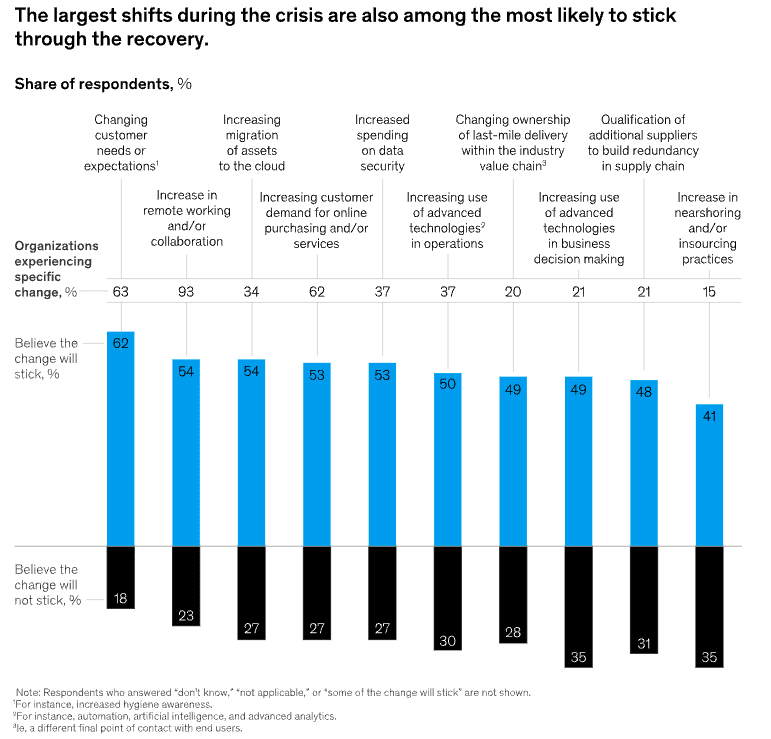Steam. Electricity. Internet.
These three industrial revolutions, starting in 1698 with Thomas Savery’s rudimentary steam engine, changed everything about the way the world works.
Today, we’re in the middle of the fourth industrial revolution: Artificial intelligence (AI).
Contrary to the common belief that shipping operates in a traditional, “old-fashioned” model, new strides as part of this automation-driven industrial revolution have created new patterns of innovation and change. This is Shipping 4.0.
Our own Captain Ahmen Khan, Director of Fleet Management at ShipIn, spoke at the 2022 SMART4SEA Virtual Forum, alongside other maritime industry leaders, including:
- Jillian Carson-Jackson, President , The Nautical Institute
- Dominic Ng , Head of Solutions Advisory, Wärtsilä Voyage
- Manish Sing CEO, Ocean Technologies Group
- Dimitris Theodossiou, Managing Director, DANAOS Management Consultants S.A.
The fascinating discussion encompassed the drivers and barriers for this wave of change in the maritime industry and how new technology is paving the way for digitization and automation in the future. You can watch the entire session below, or read on for a few key takeaways from the session:
Digitalization Driven by the COVID-19 Pandemic
The last few years have seen incredible challenges across the shipping industry due to the COVID-19 pandemic. But despite these unforeseen challenges, the industry forged ahead with great resiliency and adopted a number of practices quickly that I believe other industries can learn from.
One lasting consequence of the pandemic — which will likely have a net positive impact on the industry as a whole — is the rise in digitalization. While this trend already existed pre-pandemic, the switch to more remote working, changes in regulations, and responding to staffing and logistics challenges accelerated this trend by three to five years. According to McKinsey, it’s likely these changes will stick around in the years to come.

More than ever, maritime companies are adopting new technology like artificial intelligence. Artificial intelligence will sweep away the need for routine and repeated tasks carried out by ship staff, like logging of events, monitoring for routine maintenance, and delivering real-time reports. This increased efficiency has the potential to dramatically reshape the entire supply chain, not just on the industry or company level, adding $15 trillion to the global economy by 2030.
Barriers to AI Adoption
Why, then, haven’t more companies embraced artificial intelligence and Shipping 4.0?
At ShipIn, we don’t subscribe to the belief that the shipping industry is old-fashioned. In fact, time and time again, the industry continues to adopt new techniques, equipment, and technology quickly and with impressive resilience. But there are several barriers to AI adoption that keep shipping companies from the immense benefits the technology has to offer, such as increased efficiency, productivity, and revenue.
- Access to data. Artificial intelligence runs on data, and data collection and analysis remains a huge barrier to adoption. We’ve been collecting data onboard ships for decades, which used to come in from reports, and then sensors, but getting a complete picture remains difficult. Many systems don’t “talk” to one another, or don’t provide contextual information to understand what actions to take. Your data is only as good as the decisions you can make from it.
- Ship-to-shore communication. Similarly, it remains challenging to communicate that data between different stakeholders. We need better ship-to-shore collaboration so that both sides of the operational center can access the same information at the same time, and work together to make better decisions. With more visibility and transparency between the two, performance can improve, delivering more value for customers and ease of operations for team members alike.
- Upfront cost. Finally, any new technology comes at a cost, both in terms of the financial considerations that come with installing new hardware or software, but also in terms of human capital. In order to fully adopt artificial intelligence onboard, companies need to invest in training their teams on how to best incorporate the technology into their existing routines. Done right, AI works seamlessly within those procedures, customized to each ship’s operational culture.
Embrace Shipping 4.0 with ShipIn
Much of this technology is already available today. In fact, AI is already driving a $2 trillion increase to global GDP, according to Forbes. Shipping companies need to continue to adapt to new ways of thinking in order to remain competitive and relevant in the industry as more and more companies embrace automation and artificial intelligence.
At ShipIn, we make artificial intelligence easy. Get the visibility and insights you need to improve efficiency, safety, and onboard decision-making with our patented FleetVision™ system.


